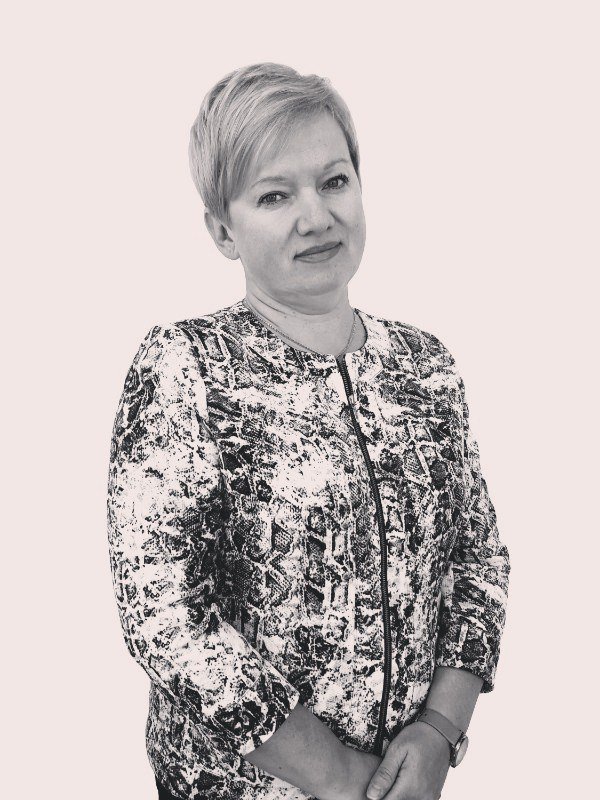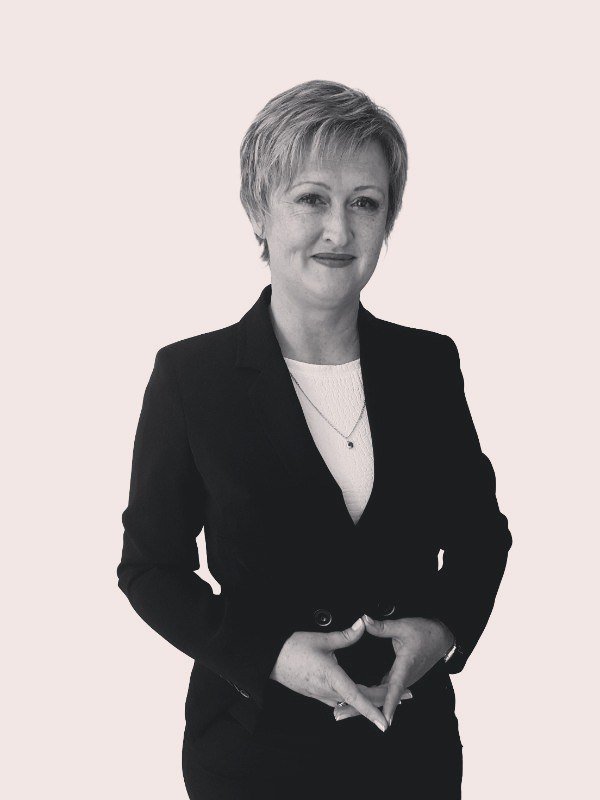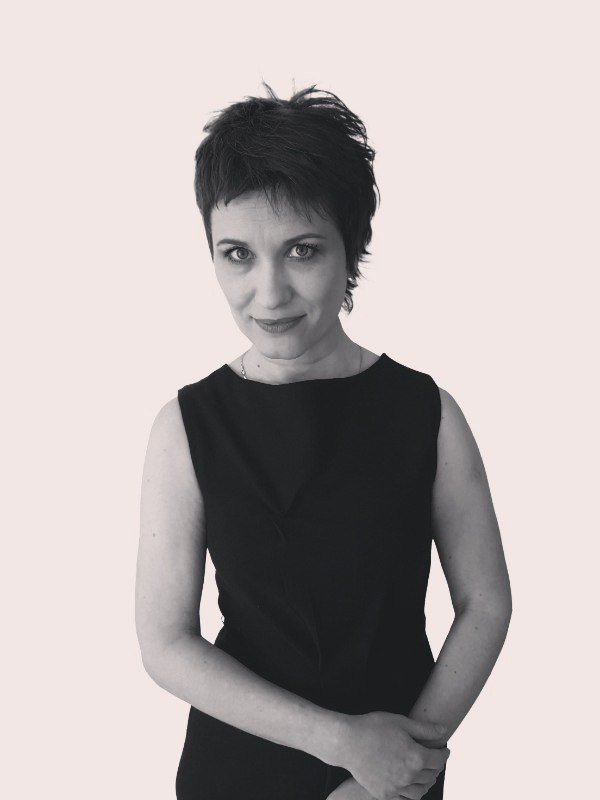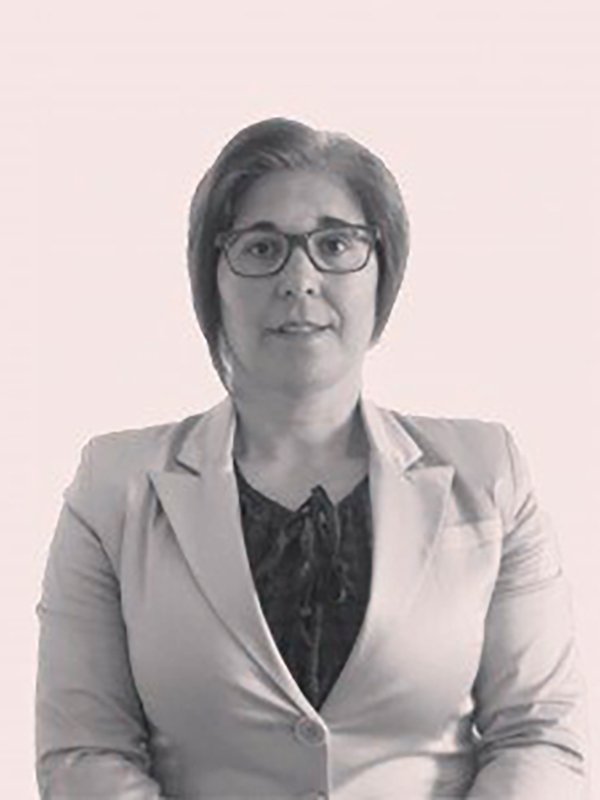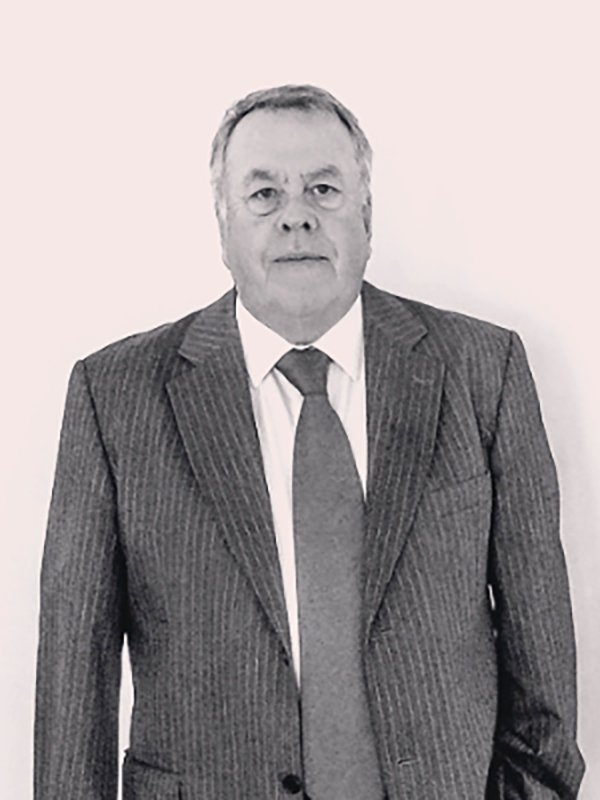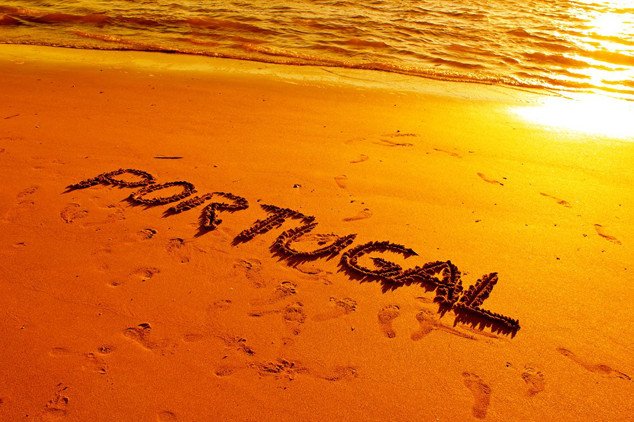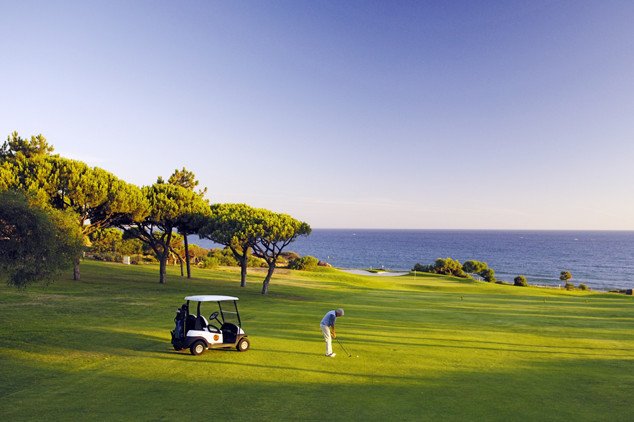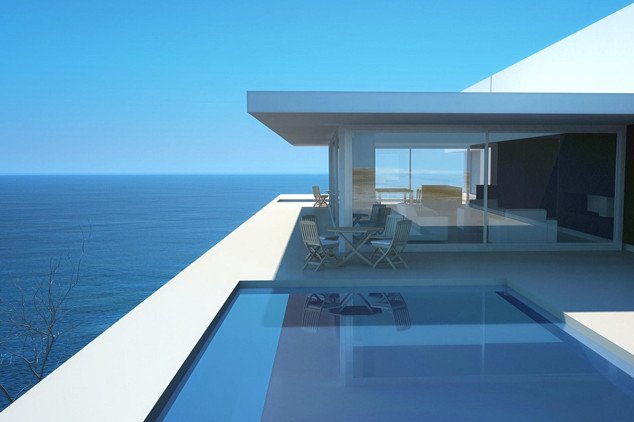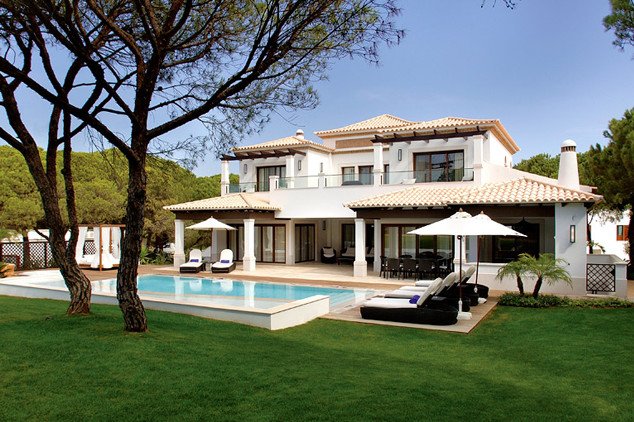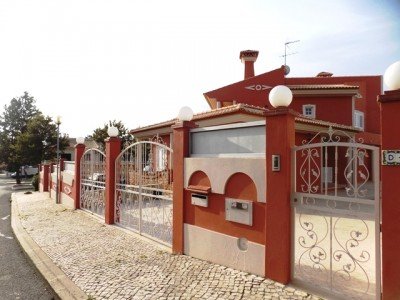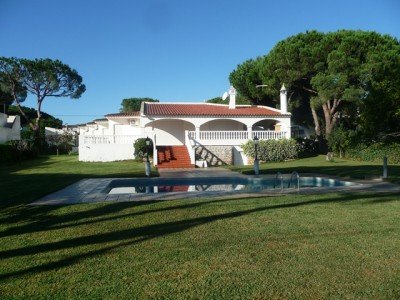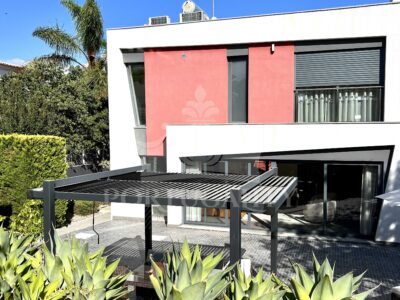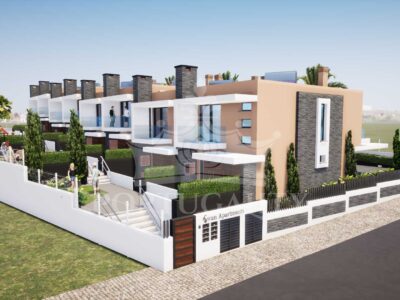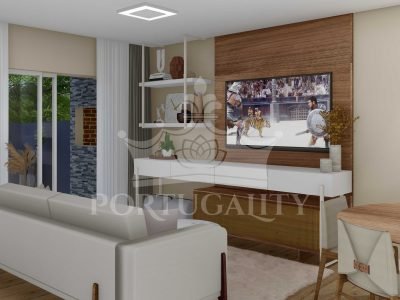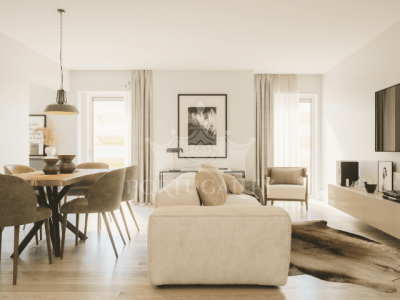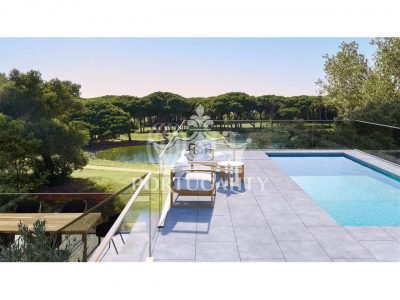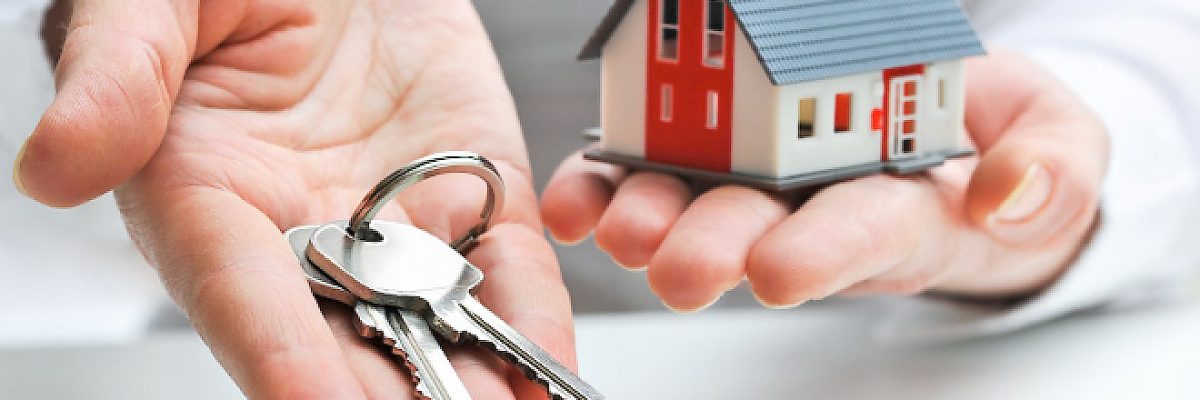
PURCHASE PROCESS
The process of buying property in Portugal is extremely simple and transparent. Employees of Portugality Realty & Investment will provide you with complete and timely information about every step of the process. Depending on each individual case, for the purchase of real estate, you will need to make 1-2 visits to Portugal. Usually the process of buying begins at home, with the compilation of a list of property for viewing in the area which intrests you. Our experienced agents will help you find real estate and provide all the necessary information about the specifics of the location, technical characteristics and other features of the property you like. After determining the dates of the trip (usually from 3 to 10 days), an English-speaking agent will be assigned to you, who will meet you in Portugal and conduct the viewings, as well as help prepare everything that is needed for the future purchase. Organization of property viewing is a service provided free of charge.
In the event of a purchase decision, non-Portuguese residents must obtain a taxpayer’s number and open an account with one of the Portuguese banks. With the timely preparation of the necessary documentation, the process of obtaining the Portuguese NIF takes 24 hours, and opening a bank account about 1 hour in person. Both services are provided by the agents of Portugality Realty & Investment. If you wish to purchase a property on your first trip, you need to prepare the documents in your home country prior to arival in Portugal. Our agents will help you with this.
The process of buying usually consists of three stages: reservation, signing of a contract of intent (preliminary contract of sale) and registration of a sale-purchase transaction. The time for implementation of all the stages takes from 7 days to several months (depending on the terms of the contract), but you do not need to be in Portugal all this time. You can either fly in for a purchase transaction, or create a power of attorney for the purchase implementation. When buying a property, the buyer must pay taxes and notary services. Taxes vary depending on the value of the property on the basis of the progressive scale established by the Tax Service of Portugal. The costs can be from 1 to 7% of the transaction amount. Once you have become the legitimate owner of real estate in Portugal, you must sign contracts for utilities, condominium and other real estate services. Our agents are happy to help you choose the most favorable rates.
ORGANIZATION OF VIEWING
A trip to explore the area and real estate – your chance to see everything with your own eyes and personally choose the place where a new life will begin for you. For inspection you will be offered those real estate options that match your requirements for price and location, and getting to know the surroundings will give you the opportunity to plunge into the local atmosphere. Thorough organization of the trip and absolute freedom of choice are the hallmark of our company’s work.
A sightseeing trip involves an inspection of facilities and consultations with specialists. The trip is not free tourism and does not include sightseeing. Locally, the English-speaking representative of the company acquaints the buyer with the objects of interest to them and helps to make the right choice. If the first visit did not succeed in discovering a property, the trip can be repeated later. In the absence of the buyer’s ability to be in Portugal throughout the transaction there is the possibility of a so-called remote acquisition. For this, at the time of being in Portugal or in the Embassy of the Portuguese Republic, a power of attorney (Procuração) is issued to the representative – an independent lawyer or employee of our company, which is then sent to a specialist in Portugal. The document is issued in Portuguese.
Services for organizing views – free for customers of the company Portugality Realty & Investment! Before registering a sale transaction, the buyer must obtain the Tax Identification Number (NÚMERO CONTRIBUINTE) from the local fiscal body (FINANÇAS), and open an account with the Portuguese bank (see the relevant sections for details of what documents are required for this).
OBTAINING of the taxpayer identification number (NIF)
To buy property in Portugal, the buyer must have a Portuguese taxpayer number (Número de Contribuinte Fiscal NIF). To obtain this number, non-citizens of the European Union must have a fiscal representative who is a guarantor of the foreigner before the Portuguese tax authorities. The staff of Portugal Realty & Investment will help you to obtain a Portuguese Taxpayer Identification Number, even before you arrive in Portugal. To do this, you need to send us the following documents by e-mail:
1. The first page of the passport.
2. Confirmation of residence. Since there is no registration in Portugal, the verification of the address is any invoice for communal payments, or a letter or a certificate from the bank, which indicates your name and full address. This document should be taken not earlier than 2 months and translated into Portuguese or English. To avoid the cost of translation and save time, many banks can request a certificate immediately in English.
3. A signed contract for the provision of services of tax representatives. (Request a contract from your agent).
The cost of this service is 180.20 euros for 1 person and 220.40 euros for a family of 2 people. The cost includes the opening of a fiscal number and a tax guarantee within 1 year. With the timely preparation of the necessary documentation, the process of obtaining the Portuguese NIF takes 24 hours.
Stages of the PROCESS OF PURCHASE / documents
The process of buying a property consists of three stages: reservation, signing a contract of intent (preliminary contract of sale) and registration of a sale transaction.
Reservation. This stage begins when the buyer has already selected one or more real estate properties and is ready to start trading at the price and terms of the purchase. At this time, a “purchase proposal” is drawn up in writing, which states the desired purchase price, the terms of signing the preliminary and basic contract of sale, the amount for non-refundable collateral under the preliminary contract, as well as a request for reservation of the property for the term of the final price agreement and terms of purchase (usually 14 days). To confirm the seriousness of intentions, the buyer, when signing the “offer”, leaves a pledge in the deposit, usually from 500 to 5000 euros, depending on the value of the property that is stored in the agency and serves as a guarantee for the seller. This amount is always refunded to the buyer when making a pledge under a preliminary agreement, in the event that the parties reach an agreement, or at any time at the request of the buyer if the parties have not agreed on the terms of the purchase. Within 14 days from the date of signing the “offer” the seller agrees to withdraw his property from sale to other buyers.
Agreement of Intent. When the buyer and the seller have come to an agreement on the price and terms of the purchase, the next step is the signing of the contract of intent / preliminary contract of sale. After a thorough check of documents for the absence of debts and encumbrances, at the time of signing the contract, the text of the contract is prepared with the description of the amount of non-refundable collateral (usually 10-20% of the cost), the method of payment, the maximum term for the sale and purchase transaction, For the parties the conditions about which the parties have agreed in the bargaining process. The contract is signed by the parties in the presence of each other and does not need to be notarized. In case of failure to fulfill the deadline for processing the transaction through the fault of the buyer, the amount of the pledge shall not be refunded, in the event of failure to perform due to the fault of the seller, the buyer has the right to demand the return of the amount of the pledge in a double amount, unless otherwise specified in the text of the preliminary contract. In the case of attracting bank funds (mortgages) for the purchase of real estate, it is necessary to pre-register (REGISTO PROVISÓRIO) the processes of transfer of ownership and mortgage lending to the local body of cadastral registration of real estate (CONSERVATÓRIA DO REGISTO PREDIAL).
Execution of the transaction of purchase and sale. The buyer must notify the agency of the desired date of the transaction at least 5 working days, the agency in turn agrees the date with the seller and appoints the transaction from the notary, and also passes to him all the documentation necessary for the transaction for the last check. Before the transaction, it is necessary to pay the transfer tax and stamp duty (see Taxes section), and also prepare a bank check for the remaining amount under the contract for transfer to the buyer from the moment of signing the purchase contract. If one of the parties or both parties does not know the Portuguese language on the transaction, the presence of an interpreter is obligatory, which undertakes to transfer the contents of the contract reliably before signing it. In the event that the seller has a valid mortgage on the transaction, a representative of the bank is necessarily present and the seller in the presence of the buyer completely repays his mortgage debt. Absence of other debts and encumbrances the notary last time checks online immediately at the time of the transaction, which guarantees the buyer full “cleanliness” of the property. After signing the contract of sale, the notary registers the right of ownership in the registration cadastral body within 15 days.
The signing of the contract of sale (ESCRITURA PüBLICA) at the Notary Office will take place only if all necessary documents are available for this:
– Receipts for payment of IMT and IMI taxes;
– Documents identifying the personalities of both parties;
– Documents related to the property:
I. CERTIDÃO DE TEOR – a certificate certifying the real estate property and its location, as well as containing information about all actions performed in relation to the property. Asked at the local body that performs cadastral registration of real estate properies (Conservatória do Registo Predial)
II. CADERNETA PREDIAL – a document certifying the registration of a property in a fiscal body. Contains information about the patrimonial value of the property, the description and status, the name of the owner and his fiscal number. A kind of passport of the property. Is issued by the local branch of the fiscal body.
III. CERTIFICADO ENERGÊTICO (energy certificate) – mandatory in the case of a purchase-sale document, issued on the basis of energy audit and reflecting the energy efficiency of the property (AE)
IV. FICHA TÉCNICA DE HABITAÇÃO – Technical data sheet of the facility containing the description, technical characteristics and plans. This is only for buildings built after March 30, 2004 (or the License for the use of which is requested after the designated date).
V. LICENÇA DE UTILIZAÇÃO – document on the purpose of the property (for living, for construction, for commercial activities). It is issued by the local municipality (Câmara Municipal do Concelho).
VI. In the event that mortgage lending is involved in the process, a copy of the preliminary registration (REGISTO PROVISÓRIO) in the Real Estate Cadastre for the transfer of ownership of property and mortgages to the bank is also provided.
Preparation and verification of all documents related to the property, is entirely the concern of specialists of Portugal Realty & Investment.
The final stage of the purchase process is the registration of the transfer of ownership of property in the body involved in cadastral accounting Conservatória do Registo Predial). In the case of the existence of preliminary registers (as, for example, in a mortgage), they change from the preliminary status to the final ones.
ACCOUNT OPENING IN THE BANK
List of documents required to open an account with Portuguese banks:
1. The passport
2. Taxpayer Identification Number of the buyer / investor’s country
3. Portuguese fiscal number (Número de Contribuinte Fiscal) – obtained from the local fiscal body.
4. Proof of residence. Since there is no registration in Portugal, the verification of the address is any invoice for communal payments, or a letter or a certificate from the bank, which indicates your name and full address. This document should be fresh, no more than 2 months, and must be translated into Portuguese or English. In many banks you can request a certificate immediately in English to avoid translation costs and save time.
5. Confirmation of employment – a certificate from the job (indicating position and salary) or other confirmation of employment (for example, receipt of wages, a working contract, a copy of state registration of business activities, etc.) – in the original
The account activation period is 24 hours after the visit to the Bank.
TAXES AND EXPENSES
When buying a property in Portugal, the buyer must pay:
1. Tax on the transfer of property (Imposto Municipal sobre a Transmissão Onerosa de Imóveis), which is calculated according to the tables presented below. The amount of tax and levy is calculated from the higher of the two values: the purchase price or the cadastral value.
2. Stamp duty on real estate transactions (Imposto do selo) – 0.8% of the higher of the two values: the purchase price or the cadastral value.
3. The payment of notary services for the registration of purchase and sale and registration of property in the cadastral authority is usually carried out by the buyer, unless the parties have agreed otherwise. The cost of registers is 250 euros, the notary fees are calculated on the basis of the transaction amount.
Tables for calculating the Transfer of Property Tax (IMT)
FOR RESIDENTS. The first and permanent housing, the continental part of the country
Value of the property Interest rate (%) The subtracted coefficient *
Till 92.407 0 0
Over 92.407 to 126.403 2 1.848.14
Over 126.403 to 172.348 5 5.640.23
Over 172.348 to 287.213 7 9.087.19
Over 287.213 to 574.323 8 11.959.32
Over 574.323 6%
FOR NON-RESIDENTS. The second housing, the continental part of the country
Value of the property Interest rate (%) The subtracted coefficient *
Till 92.407 1 0
Over 92.407 to 126.403 2 924.07
Over 126.403 to 172.348 5 4.716.16
Over 172.348 to 287.213 7 8.163.12
Over 287.213 to 550.836 8 11.035.25
Over 550.836 6%
Agricultural land – 5%
Land for construction, commercial property – 6,5%
• Subtractable coefficient is a value that is subtracted after calculating the appropriate percentage of the value of the property. For example: the price of the property purchased as a holiday home (see table 2), 100.000 euros. The tax rate for this cost is 2%. Therefore, the amount of tax paid is: 100,000 x 2% – 924,07 (Parcela a abater) = 1075,93 euros.
Taxes payable annually. Every year, the owners of real estate in Portugal pays “Municipal property tax” (IMI – Imposto Municipal sobre Imóveis). Tax rates vary depending on the nature and cadastral value of the property, the marital status of the owner, and on the tax rate of the municipality. The real estate tax, intended for living, as well as commercial real estate, ranges from 0.3% to 0.5% of the cadastral value. The land tax rate for agricultural land is 0.8%. There is also an additional tax AIMI (Adicional ao Imposto Municipal sobre Imóveis). This tax is levied on real estate with a cadastral value of more than 600.000 euros – a rate of 0.7%, and from 1.000.000 euros – a rate of 1%. The municipal property tax is paid by the owner of the property (physical / legal entity): – once a year, in April – if the amount for payment does not exceed 250 € – in two installments in April / November – if the amount to be paid from 250 to 500 € – three In parts in April / July / November – if the amount to be paid is above 500 €. The tax legislation provides for the exemption from payment of the above tax in some cases (more information you can get from our consultants).
EXPENSES RELATED TO THE MAINTENANCE OF REAL ESTATE
In addition to the annual municipal property tax, the homeowner in Portugal will have to pay for community and maintenance services, depending on the type of real estate, size, characteristics, location and intensity of use. To pay utility bills, the owner must sign contracts for water, electricity and gas supply with utilities. If the real estate belongs to the secondary market, you need to reassign the communal contracts of the previous owners. It is important to be attentive to the dates of previous payments, so as not to pay the expenses of the former owners. On average, the content of the villa area of 250 square meters will cost from € 250 per month, apartments of 70 sq.m. – € 70-150. The amount of some payments can be fixed with subsequent clarification on the meter.
Estimated monthly expenditures are:
• Electricity – from € 40;
• Water supply – from € 15-18;
• One large gas cylinder – € 50 (enough for two months for a family of four);
• Internet / TV / telephone – € 25;
If the apartment or villa is in a condominium, it is necessary to allocate some funds for the maintenance of real estate (condominium services). It includes the maintenance of good technical facility systems (electrical, etc…), Repairing roads, cleaning the interior and the surrounding area, painting buildings, garbage, pool cleaning, and various ancillary services – up to forwarding mail. Payments for an apartment in a condominium will amount to approximately € 300 to € 2,5 thousand per year. To service the villa you can contact a specialized management company. The cost of its services will be approximately € 2.5 thousand to € 5 thousand per year.
Another item of expenditure can be insurance (typical insurance includes such risks as fire, natural disasters, malicious acts of third parties, etc.). It is not mandatory, its cost is approximately € 70-400 per year.
MORTGAGE CREDIT LENDING
Mortgage lending is one of the most convenient and progressive financial instruments for real estate acquisition, not only in your own country, but also in the territory of other states. In Portuguese banks, loan conditions and loan rates are such that a citizen can become the owner of a property. Since for any bank in the first place – the solvency of the borrower, almost all banks in Portugal take into account the existing obligations and monthly payments, whether bank, personal (alimony), mortgage or utility. The size of all one-time monthly payments, including mortgages, under Portuguese law can not be more than 35% of your total monthly income, but in some cases the bank reserves the right to adjust this figure.
All banks in the territory of Portugal require confirmation of your income. This evidence can serve as a reference for a monthly salary and certificates of the availability of other income (savings, investment). Insurance of property acquired in mortgages is a mandatory condition for banks and is sometimes sold by the bank as a separate product. Life insurance of the borrower is also mandatory in most cases, but there are always some exceptions.
At the moment, for non-residents, Portuguese banks provide a loan on the following terms: the loan term until the age of 75 of the senior borrower, the initial entry of at least 50%.
Portuguese banks practice 2 types of rates: floating and fixed. The floating rate consists of two parts: the “base” – the time-varying market situation indicator and the “bank margin” (spread) – a constant value that is added to the database. This rate is revised periodically (3, 6 or 12 months). The basis is the interbank rate EURIBOR for the same period (that is, the interest rate = EURIBOR + spread). Currently, EURIBOR for 3 months is -0.329%, while the banking margin, that is, the spread ranges from 1.75 to 3% (depending on the amount of the loan and the bank). Another option is that the rate is uniquely written in the form of a fixed figure – in this case it does not change during the term of the loan agreement and is called fixed, as a rule this rate is initially overstated. When issuing a loan for the purchase of housing, the bank will necessarily require you to draw up a home insurance contract and possibly life insurance for an amount equal to the amount of the loan. Insurance premiums are paid monthly, along with payment for the loan. Usually banks calculate two interest rates – a nominal rate (TAN), which takes into account only interest for using the loan, and an effective rate (TAE), which takes into account all additional fees, insurance and commissions. It is clear that this is the best bet and shows the true cost of the loan for the borrower. Currently, it ranges from 2% to 3% for a floating rate and reaches 5% for a fixed rate.
List of documents required to apply for a mortgage in Portuguese banks for non-residents:
1. Declaration of income from the tax inspection for the last year, certified by an apostille, translated into Portuguese*.
2. Foreign passport.
3. Taxpayer Identification Number (número contribuinte). Issued by your local fiscal body.
4. Certificate of employment ** (indicating your position and salary) in English.
5. Receipts from banks on the movement in the account for the last 6 months, where the salary is paid.
6. Proof of residence. Confirmation can serve as correspondence from the bank in English language (enough that the address and name were in English) or, for example, utility bills translated into Portuguese (the translation is certified by the consulate).
7. It is desirable to show a certificate from the bank indicating the availability of funds for the initial payment.






